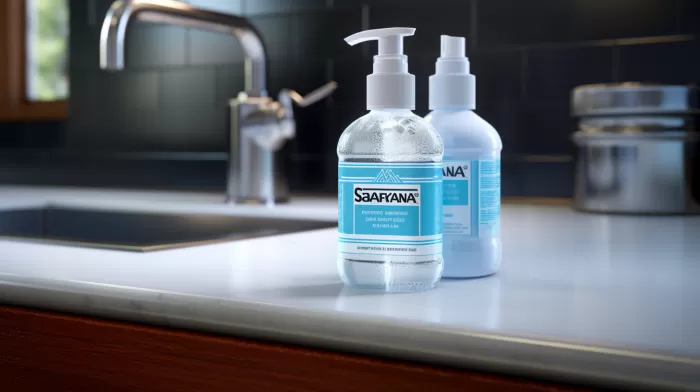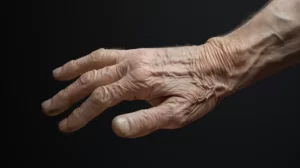By now, we’ve all heard stories of bottles of hand sanitizer flying off store shelves as worries about Coronavirus escalate in the U.S. In fact, sales of sanitizer have skyrocketed compared to last year. And, it’s no wonder with the CDC stressing that hand sanitizer with a high alcohol content works well against germs. However, while hand sanitizer is a great solution for keeping your hands germ-free on the run, it does come with dangers you should be aware of in order to make the best choice for keeping you and your family well.
Post triclosan
It used to be that when you talked about hand sanitizer and whether it’s safe to use, the main worry had to be triclosan – a chemical used for its power to kill bacteria. However, once it was linked far too many times to gut problems and antibiotic resistance, the FDA finally ruled that companies could no longer use it in the sanitizers we slather onto our hands. One might think that with triclosan out of the picture, hand sanitizers must be safe to use, but there are still issues to be wary of.
Skin damage, infection, and killing off beneficial bacteria
You see, the CDC says that if you’re going to use hand sanitizer, you need to choose one that is high in alcohol (at least 60 percent). Here’s the problem with that…When you use anything on your skin too often, it can lead to irritation and cause your skin to break down. When high levels of alcohol are added to that equation, the problems can become even worse – leaving your skin dry, cracked, and open to germs that can penetrate your body and cause infection. To make matters worse, alcohol doesn’t just kill bad bacteria and viruses; it can also kill the good bacteria that inhabit your skin and work to protect you.
As Dr. Trevan Fischer, surgical oncologist and assistant professor of surgical oncology at John Wayne Cancer Institute at Providence Saint John’s Health Center in Santa Monica, California, explains: “If you’re beating down a natural defense the body has, you could be causing some chronic risk over time.” On top of that, studies have found that applying alcohol to your skin can reduce its barrier function, making the membrane more permeable and allowing harmful chemicals, like the nitrosamines found in cosmetics, to slip in.
Soap first
With all these negatives, should you skip the hand sanitizer? Essentially, the answer is no. The official CDC guidelines advise using good old-fashioned soap and water whenever possible, but they do concede that when you can’t wash your hands (like when you’re nowhere near a sink or running water), using hand sanitizer is the right choice. The key is that if you can get to water and soap, it’s hands-down the best choice.
When washing, be sure to take the advice of the FDA and Harvard doctors and soap all surfaces of your hands, from the inside of your fingers to around your nail beds, and up to your wrists. Don’t forget to wash for a full 20 seconds. A fun way to ensure you’ve washed long enough is to sing the “Happy Birthday” song all the way through, three times.
Choose the right hand sanitizer
When you can’t wash your hands with soap and water, it’s essential to choose the right hand sanitizer. The CDC recommends a sanitizer with at least 60 percent alcohol content. However, you may want to consider natural alternatives that don’t contain harsh chemicals. Some of these alternatives include sanitizers made with essential oils, such as tea tree oil, which has natural antibacterial properties and can be less harsh on your skin.
Moisturize your hands
To minimize skin damage from using hand sanitizer, it’s essential to moisturize your hands regularly. Look for a nourishing hand cream that includes ingredients like shea butter, glycerin, and natural oils to help repair and protect your skin’s natural barrier.
In conclusion, wash your hands with soap and water whenever you can. Use hand sanitizer when you can’t, and be cautious about the type of sanitizer you choose. Most importantly, keep your hands moisturized to minimize skin damage. Stay safe and well-informed out there!



